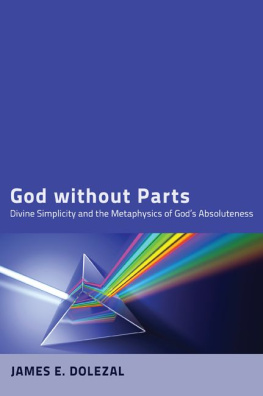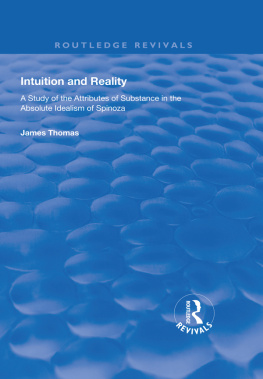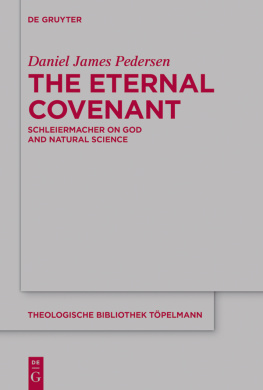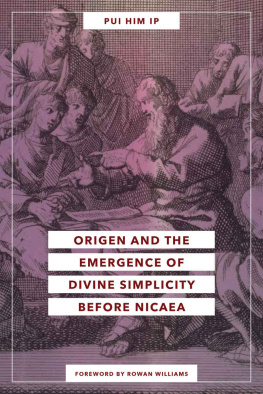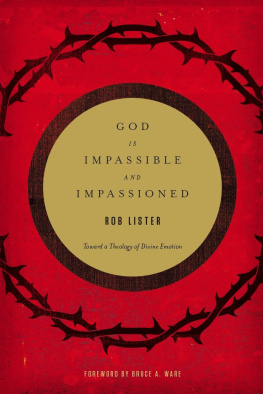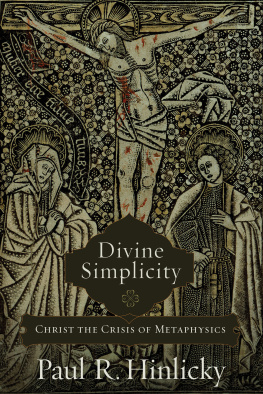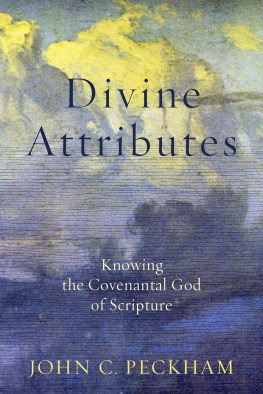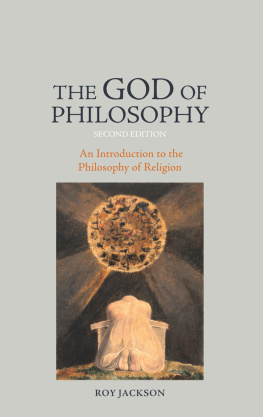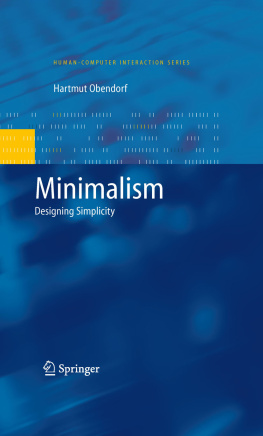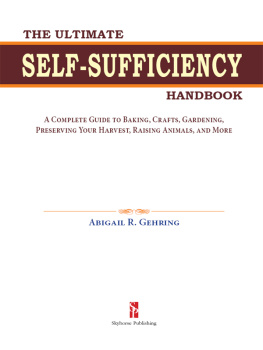God without Parts
Divine Simplicity and the Metaphysics
of Gods Absoluteness
J AMES E . D OLEZAL
PICKWICK Publications - Eugene, Oregon
God without Parts
Divine Simplicity and the Metaphysics of Gods Absoluteness
Copyright 2011 James E. Dolezal. All rights reserved. Except for brief quotations in critical publications or reviews, no part of this book may be reproduced in any manner without prior written permission from the publisher. Write: Permissions, Wipf and Stock Publishers, 199 W. 8th Ave., Suite 3, Eugene, OR 97401.
Pickwick Publications
An Imprint of Wipf and Stock Publishers
199 W. 8th Ave., Suite 3
Eugene, OR 97401
www.wipfandstock.com
isbn 13: 978-1-61097-658-9
Cataloguing-in-Publication data:
Dolezal, James E.
God without parts : divine simplicity and the metaphysics of Gods absoluteness / James E. Dolezal.
xx + 240 pp. ; 23 cm. Includes bibliographical references and index.
isbn 13: 978-1-61097-658-9
1. GodSimplicity. 2. GodAttributes. 3. God (Christianity)History of doctrines. 4. Thomas, Aquinas, Saint, 1225?1274. 5. Protestant Scholasticism. I. Title.
bt148 d56 2011
Manufactured in the U.S.A.
For Courtney
Though we cannot comprehend him as he is,
we must be careful not to fancy him to be what he is not.
Stephen Charnock, The Existence and Attributes of God
Foreword
D R. J AMES D OLEZALS TREATMENT of divine simplicity, which provides a defense of this doctrine in perhaps its strongest form, is a first-rate piece of work. He shows himself to have a grasp not only of the primary and secondary intellectual sources but also of the arguments of contemporary critics as well as of defenders of the doctrine, especially those in analytic-style philosophical theology, analytic theology as it is coming to be called. He does not simply dust off the cobwebs of old ideas and rehearse antiquated positions. Not content with mere exposition, able as this is, the author likes to argue, presenting robust defenses of divine simplicity against some of its eminent detractors and modifiersfor example, Alvin Plantinga, Thomas Morris, and Eleonore Stump. He takes these on, utilizing some current arguments of Brian Leftow, William Mann, and others, but also offering arguments of his own. The result is the best full-length philosophical treatment of divine simplicity that I know.
Gods simplicity is a central element in the grammar of classical Christian theism. The data regarding the essence and nature of God, as revealed in Scripture, have by and large an occasional and unsystematic character to them. But because Scripture, as Gods word, is self-consistent, the varied data must be self-consistent, and when properly appreciated must also be seen to be. Or, at the very least, it may be recognized that alleged inconsistency cannot be proven. The classical conceptual shape of Christian theism offers a template in terms of which that consistency may be appreciated. For it provides rules, drawn from the varied data of Scripture, in terms of which the varied language of Scripture about God, not only in his unity but also in his trinitarian glory and in his actions in the economy of redemption, can be learned and used without falling into inconsistency or serious error. It is not so much an explanatory as a grammatical template .
So in thinking about divine simplicity as an account of divine unity we are not to think of it primarily as a description of that unity, much less as an explanation of it, but as offering rules for appreciating and employing the character of divine unity. This is a central part of the fuller grammar of Christian trinitarianism. It aims to bring together a way of thinking and speaking about divine unitythat God is one and that the Lord our God is one Lordthat does justice to the manifold witness of Scripture to that unity and to ways of handling its apparent references to divine complexity and disunity in a way that considering each isolated datum in turn could never do. Fundamental to that grammar is a conviction about God, made evident throughout the Scriptures, that he is the creator of space and time and all that it contains, existing at a point beyond space and time and not therefore subject to it. God is not spread out in space or in time, a creature among fellow-creatures. How then are we to think and speak of him?
Part of the answer to that question is that we are to think of God partly in negative terms, as we have just been doing: not in space, not in time. An account of divine unity must be consistent with such timelessness and spacelessness. But there is more. For in being the Creator, and not a creature, or creaturely, God does not depend for his existence on operations or forces working upon him. He is not fashioned or the product of parts forming themselves into a unity in an arbitrary fashion. He is necessary, self-existing. This means, for example, that God is not composed of elements that are more ultimate, in a logical or metaphysical sense, than he himself is. It is by attention to such considerations that the doctrine of simplicity has been developed, in order to safeguard that divine sovereignty and transcendence to which Scripture richly testifies. Divine simplicity is not the doctrine that God has no features, an infinite tabula rasa . Nevertheless he has no parts and so is not divisible.
But what of the Trinity? Christian theologians have routinely stated that the threefoldness of the Trinitythat God is Father, Son, and Holy Spirit, each person being wholly divinerefers to distinctions in the Godhead, not to divisions in it. All divisions involve distinctions, but not vice versa. This distinction between distinctions and divisions has been in service in trinitarian thinking a long time; it can be found, for example, in Tertullian.
To suppose that the distinction between the Father and the Son, for example, is a division between them is to suppose that the terms Father and Son denote different parts in God, each of which is separable from the other. A triune Godhead that consists of a divisible threeness would thus be made up of three partsFather, Son, and Spiritwho together comprise it. The obvious problem with such a proposal is that it violates the biblical affirmation that God is one, which the doctrine of divine simplicity articulates. Another consequence of supposing a division between the persons is that Father, Son, and Spirit would each be part of God, and so not the whole God, and so not wholly divine.
God the Creator is one God, and not creaturely. Because God is timeless he is changeless, immutable. Not simply in the sense that he has chosen to be so, or covenanted this, proposals which offer a rather unstable account of Gods changelessness and are probably incoherent. He is metaphysically changeless. Such changelessness in turn entails divine impassibility, an idea frequently misunderstood and derided. But impassibility is not to be confused, as it often is, with impassivity or with dispassion. Although it may seem paradoxical, the stress on impassibility is meant to safeguard the fullness of Gods character. He is eternally impassioned, unwaveringly good, not moody or fitful as he is buffeted by the changes of his life, some of them, perhaps, unexpected changes.
Another way of entering this territory, a way which is quite consistent with what we have been thinking about, is via the idea of God as the most perfect being. God is a being than which no greater can be conceived. This is not a piece of metaphysical speculation, but is clearly stated or implied in Scripture, as in Hebrews 6:1314, which refers to God as one besides which there is none greater. For had there been a greater than God then in establishing his covenant God would have sworn by that greater. But he swears by himself and so establishes a covenant that is immutable and which for that reason is utterly trustworthy.
Next page
